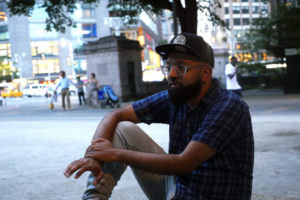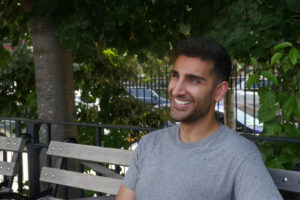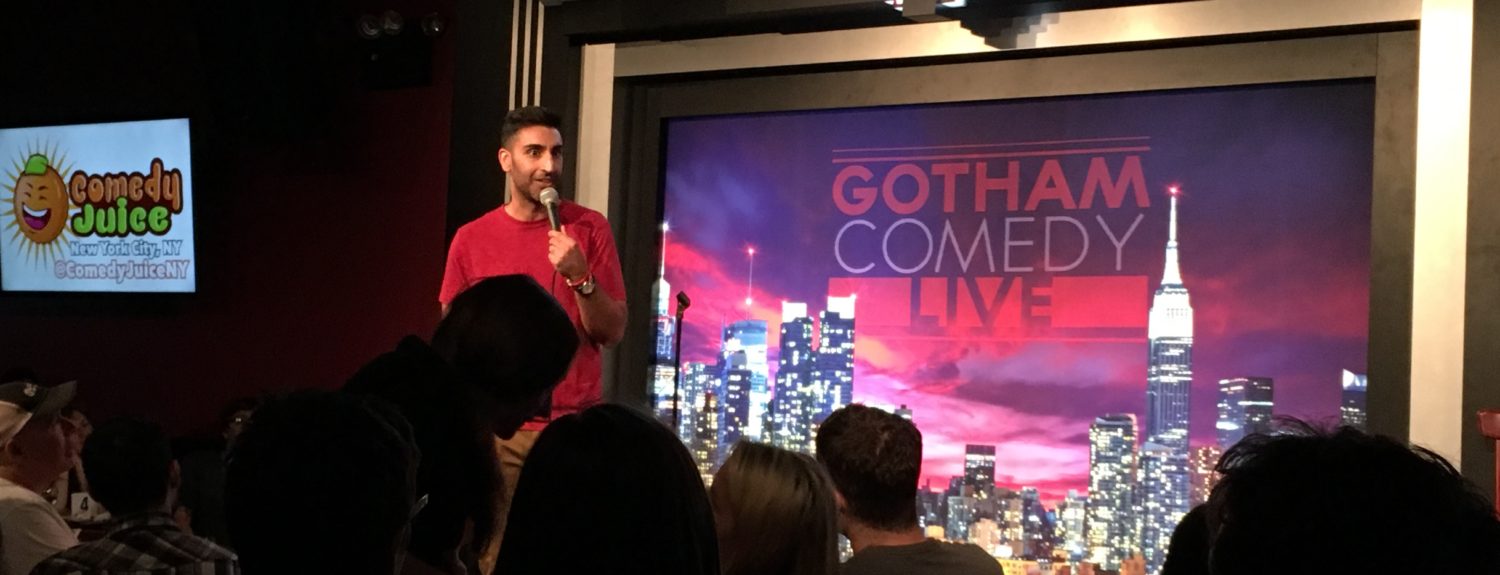Featured Articles
Brown Comics Spotlight Whiteness in the Entertainment World
By Mina Mohammadi
Spectrum staff
Of all the racial and ethnic minorities wanting to work up front in the entertainment industry, Muslims and Middle Easterners–groups often wrongly lumped together–are especially racing to catch up and make sure their communities’ experiences get captured on stage and screen.
There have been some mixed successes. The television series “Quantico,” “Homeland” and “Blackish,” as examples, included Muslim/Middle Eastern characters in some of their episodes. But sometimes, critics noted, the storylines of some episodes focused on terrorism and terrorists.
Comics Maz Jobrani, Gibran Saleem and Aman Ali were U.S.-born to parents who themselves are native Middle Easterners and/or Muslim. Those brown-skinned entertainers have a variety of thoughts about their work and the comparative lack of entertainers who share their racial or religious backgrounds.
“I know Hollywood is looking for more diversity, but I don’t know if they are casting more diversity,” said Saleem, 34, a Muslim-America comedian and actor living in New York City. “ … Muslims are being cast like a side salad. We are being integrated into the American entertainment diet, but we still have a long way to go.”

In his own comedy, he tackles stereotypes. And as he searches for work, he sometimes gets frustrated by other peoples’ efforts to limit and pigeonhole him.
Usually, he said, when he and a brown-skinned friend audition, they are both competing for what he defines as the same token role of a Middle Eastern character. Those parts, as sparing as they are, often seem one-dimensional and contrived. Often, they get reserved for lighter-skinned Muslims and Middle Easterners, he added.
“I don’t think it’s coming from a bad place because the entertainment industry is trying to reflect what is happening in the world,” Saleem said. ” … Now, everyone is stuck with the same view that brown people are dangerous and are going to blow stuff up.”
Over the telephone from his home in Los Angeles, Iranian-American Maz Jobrani, 45, told The Spectrum that, in many ways, he empathizes with Saleem’s concerns about how Hollywood sometimes misrepresents the experiences of people like him. He agreed that the industry sometimes fails to distinguish one brown-skinned Muslim, Middle Easterner or, for that matter, one South Asian from another.
Part of the problem is that there is not enough diversity in Hollywood, including among those who hire and fire performers.
“When I first started, I took a stand-up comedy class. They encouraged us to write about what we knew and what made us different,” Jobrani said. “Back then, there were no other Iranian-American comedians in stand-up, so that made me unique.”
Another part of the problem is that some white Americans, including those whose control Hollywood, sometimes seem to consider some Middle Eastern and South Asian actors, comics and other entertainers as white.
“There is a group of actors in the Screen Actors Guild who are trying to push for Middle Eastern and North African actors to have their own category,” Jobrani explained. “Right now, we don’t qualify as a minority and so the networks don’t feel obligated to fill a quota with people from our backgrounds.”

Growing up, Aman Ali, now 32, was part of the only minority family in his otherwise all-white hometown in Ohio.
He was the kid who translated for his white friends what was happening on “The Fresh Prince of Bel-Air,” whose all-black cast was led by rapper-turned-actor Will Smith.
“I’d be, like, ‘Man, it’s f@#$ing English.’ I was always that cultural explainer.”
Ali, who now lives in New York City, shared that story to show how much some whites, including in entertainment, may not know very much about people unlike them.
He took part in the “I’m a Muslim: Ask me Anything” campaign that Trump’s election jumped off by taking his comedy tour on the road to states where Trump won by significant margins. “It was totally incredible,” Ali said, of his tour. “I thought I was going to be teaching people but, instead, people were teaching me. I had to check my own biases and my own racism and question my own beliefs.”
Through his comedy, Ali said he is taking the kinds of risk that both help people of Middle Eastern descent like him better assimilate into the American cultural mainstream but also to diversify and add nuance to that society, to add some brown perspectives.
While changing perceptions of Middle Easterners and Muslims in entertainment and elsewhere is hard work, these comedians said they are doing that work–through their comedy–and don’t imagine that that work will end anytime soon.
“If I was doing creative advertising or psychology, it would only fulfill certain parts of my brain but not everything,” Ali said. “Comedy … is what I am supposed to be doing, not anything else.”


